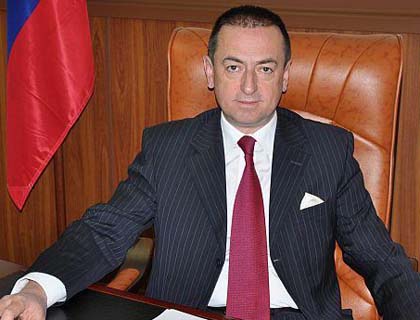KABUL - Russia said on Wednesday it believed that a long-term foreign military presence in Afghanistan would not help maintain security in a region haunted by the twin scourge of terrorism and narcotics.
On Saturday, the traditional Loya Jirga on the strategic cooperation pact with the US concluded with the release of a 76-article declaration, recommending the creation of American bases in the country for a decade.
Endorsing the agreement with US was necessary for maintaining security and strengthening Afghanistan's economy, delegates at the four-day day assembly said in the declaration, which underlined respect for the Afghan culture, traditions and religion.
In an exclusive interview with Pajhwok Afghan News, the Russian ambassador to Afghanistan conceded every sovereign state reserved the right to conclude international agreements with other countries.
"At the same time, every country lives in a certain region with its neighbors. The region we live in together with Afghanistan is obviously not one of the safest in the world," Andrey Avetisyan remarked.
"Bearing in mind two major threats -- terrorism and narcotics -- we have to watch closely what is happening here. By now we are not convinced that a long-term foreign military presence in Afghanistan will help to maintain security in the region," he said.
A decade back, Russia together with other UN Security Council members approved the mandate of the international coalition to fight the terrorist threat in Afghanistan, he recalled. Moscow continued supporting ISAF's mission in Afghanistan, but wanted to see the results, the diplomat added.
The international coalition must leave the country after it reported to the Security Council that the mandate, which was not to end by 2014, had been fulfilled, the ambassador said. "If this is not the case and some military presence is still needed after the announced withdrawal, we'd like to know what exactly the tasks of the troops and military bases left behind are."
Russia's good neighborly ties with Afghanistan had lived through difficult times, he said, calling the war-hit country a good friend and partner. That was why Russia frankly discussed with Afghan friends all issues of mutual interest, including long-term foreign military presence, he continued.
Avetisyan regarded the 2014 international troop pullout schedule as a date set artificially, because the ground realities suggested the goals proclaimed by the coalition in Afghanistan had not been achieved as yet. The security situation had deteriorated throughout the 10-year foreign military presence in the country, he insisted.
There was a spike in violence even in the formerly peaceful north, the envoy said, pointing to the rising levels of drug production and trafficking. He believed the most important task -- building and training a strong Afghan national army and police -- was far from complete.
"So it raises legitimate questions whether the limited number of personnel and military bases can do the job left after the announced withdrawal," explained the ambassador, who saw national reconciliation as the viable answer to Afghanistan's problems.
Urging the international community to work together with the Afghan government to better address the needs of the country, he said the key coordinating role belonged to the United Nations.
"Regional cooperation is one of the most important tools to bring peace and stability to Afghanistan and the region. Russia is ready to continue its support to the Afghan friends bilaterally, through regional formats such as the Shanghai Cooperation Organization and in a wider international context."

